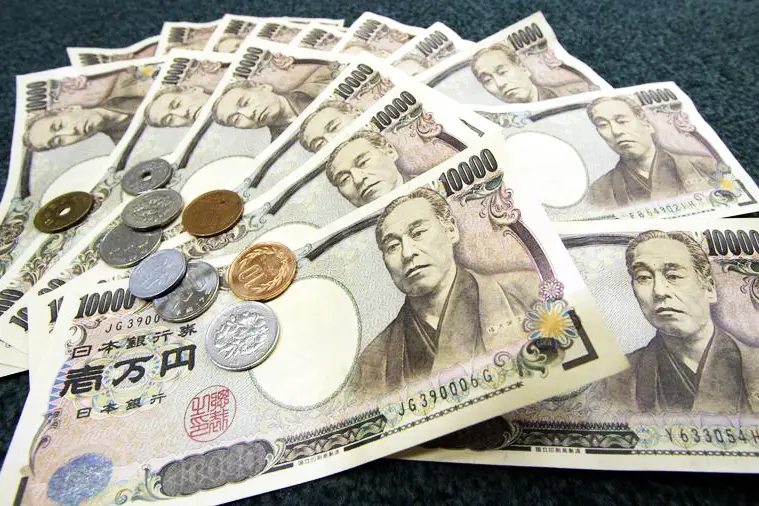PHOTO
LONDON - The yen headed for a fourth weekly gain against the dollar on Friday, after its biggest rally in almost a year the day before, driven by a burst of optimism among traders that Japan’s ultra-low rates policy may soon end.
Activity overall across the market was muted ahead of the U.S. nonfarm payrolls report later on Friday.
The yen surged by as much as 1.2% earlier on, adding to Thursday's 2% rally after Bank of Japan (BOJ) Governor Kazuo Ueda gave the clearest steer yet that the central bank is considering when to wrap up its negative rates policy.
The Japanese currency has vaulted to multi-month highs against a range of others in the last two days, although some of that strength dissipated over Friday's European trading session.
The yen eased a touch, leaving the dollar up 0.2% at 144.46 .
Thursday's rally was the largest one-day jump for the yen since January. But without more impetus from the BOJ, it may not have much more scope for outsized gains, according to Fiona Cincotta, City Index market strategist.
"Without anything for the market to get their teeth into from the BOJ, the sell-off (in the dollar) has been done and, as far as the dollar is concerned, it's almost as if it's waiting for that next catalyst and that next catalyst is going to be today," she said.
A month ago, the yen hit a one-year low of 151.92, crushed by the widening gap between U.S. and Japanese borrowing costs. In the past few weeks, the outlook for U.S. interest rates has switched to one of a series of cuts next year, which helped prise the yen off those lows.
YEN ON A TEAR
This week's comments from the top of the BOJ has lit a fire under the Japanese currency.
The yen has fared best against higher yielding currencies, such as the pound.
Sterling fell to a two-month low against yen on Friday, but later recovered to rise 0.7% to 182, while the euro cut a nine-day stretch of losses, rising 0.2% to 155.87.
The BOJ meets later this month and the options markets shows traders are preparing for volatility around the event, even if the chances of an outright shift in policy are low, according to Ray Attrill, head of FX strategy at National Australia Bank.
"A lot of us have felt that we were going to have some sort of more meaningful policy change this year, and we've been disappointed. So I'm a bit reluctant to jump on the bandwagon and say that (a change) is going to happen on the 19th," he said.
"But obviously, there's no smoke without fire... So I guess the market is understandably taking the view that the December meeting is live now."
Recent weakness in consumption has emerged as a fresh source of concern for BOJ policymakers as they eye an exit from negative interest rates, three sources familiar with its thinking said.
In the broader market, the dollar nudged up, although activity beyond the yen was subdued ahead of the jobs data.
The euro fell 0.1% to $1.0783, while the pound dropped 0.2% to $1.258, set for a 1% weekly fall.
Elsewhere, the Australian dollar rose 0.1% to $0.661, while the Chinese yuan was 0.1% weaker against the dollar in offshore trading at 7.171.
Data on Thursday showed China's exports grew for the first time in six months in November, while imports shrank.
(Additional reporting by Rae Wee in Singapore; Editing by Kim Coghill and Mark Potter)





















